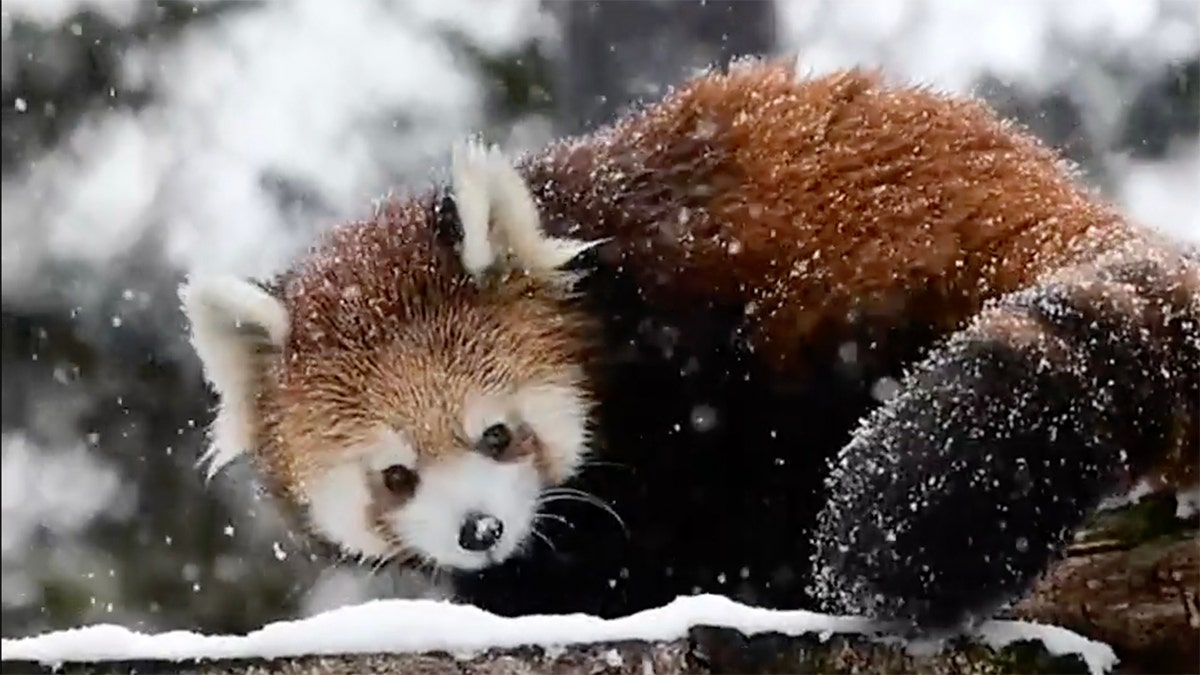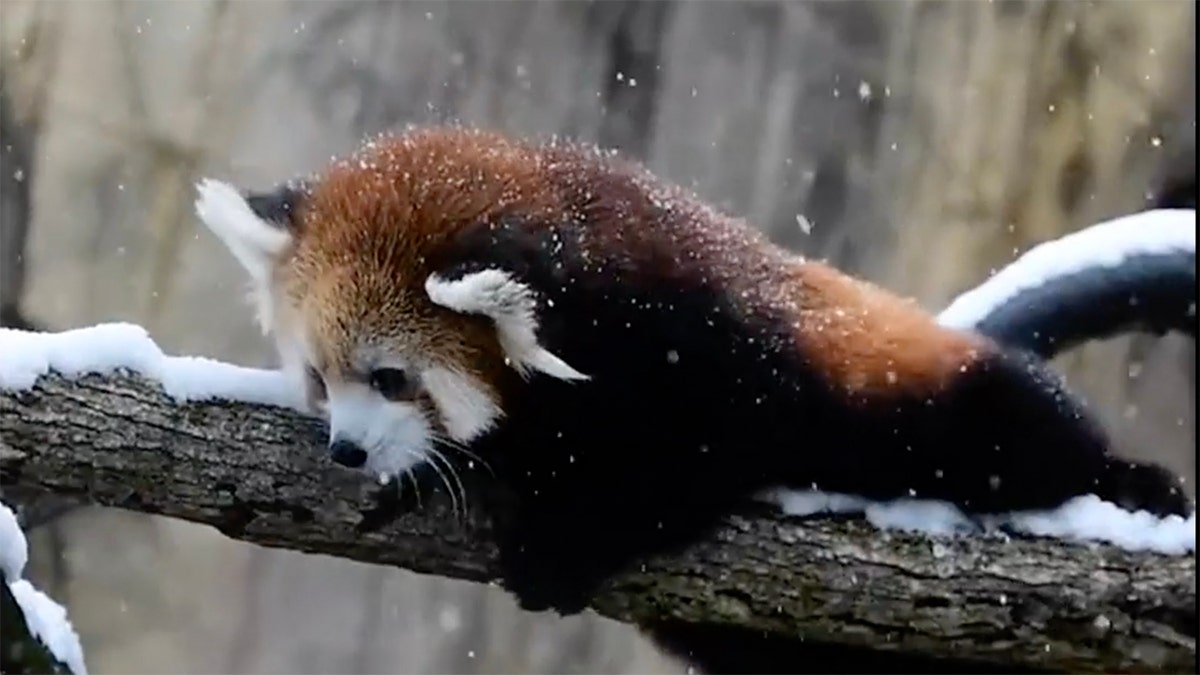Milwaukee County Zoo’s baby red panda discovers snow for first time
Cinder the red panda was born on June 12, 2022, and she played with snow for the very first time at Wisconsin's Milwaukee County Zoo in November 2022.
The Milwaukee County Zoo recently experienced its first snowfall of the season but for its baby red panda, Cinder, it was her first snowfall ever. (SEE THE VIDEO at the top of this article.)
Cinder was born on June 12, 2022, and she made her first public appearance at the Milwaukee County Zoo in Wisconsin on Oct. 6, according to the zoo’s website.
Staff at the zoo have been keeping fans of Cinder updated on her growth and well-being ever since.
RED PANDA DISCOVERED IN FIG TREE AFTER IT FLED FROM AUSTRALIA ZOO
The video of Cinder was shared on Thursday, Nov. 17, following the snowfall on Tuesday, Nov. 15.
Viewers can watch Cinder play in the snow and discover its newfound slippery quality as she saves herself from falling off a branch and the edge of her habitat platform.

Cinder, a baby red panda, takes a look around at the first fall of snow at the Milwaukee County Zoo in Milwaukee, Wisconsin. (Milwaukee County Zoo / AMAZING ANIMALS+ /TMX)
She even decides to give the snow a quick taste more than once.
While some may be concerned for Cinder in this chilly weather, the zoo said she's able to handle the cold.
Look who we found exploring! 👀 Look for Cinder outside from 10am to 2pm daily.
— Wild Lights ✨ MKE Zoo (@MilwaukeeCoZoo) October 6, 2022
💚
Did you know: Red pandas are endangered, their primary threats are habitat loss, human interference, and poaching.#redpanda #redpandacub #weareaza #savingspecies #MKEZoo pic.twitter.com/l12YzjMMqd
ELEPHANTS AT MILWAUKEE ZOO HAVE SMASHING 'GOURD' TIME WITH GIANT PUMPKINS
"Red pandas have a thick double-layer of fur. The two combine to create insulation to help them fight off cold temperatures and keep snow from reaching their skin," according to a tweet posted by zoo staff.

Cinder slips on a branch covered with snow and holds on tightly with her fur covered paws. (Milwaukee County Zoo/AMAZING ANIMALS+/TMX)
"Fortunately, red pandas have some incredible and unique adaptations that help them survive the harsh winter weather they face," according to the Red Panda Network.
It's a Nepal-based organization that's committed to the conservation of wild red pandas.
Cinder is 12 weeks today. Here's a look back at how much she's grown 💚
— Wild Lights ✨ MKE Zoo (@MilwaukeeCoZoo) October 12, 2022
She's gone from 144g at birth ➡️ 3kg now!#redpanda #redpandacub #zoobabyboom #MKEZoo pic.twitter.com/0jxuWWLvuY
Red pandas are native to Nepal, Northern Myanmar and Central China, according to the Milwaukee County Zoo.
CLICK HERE TO SIGN UP FOR OUR LIFESTYLE NEWSLETTER
Their diets include bamboo, fruit, acorns, roots and eggs. The endangered mammals can grow from 12 to 20 pounds and have a lifespan of 13 years.

